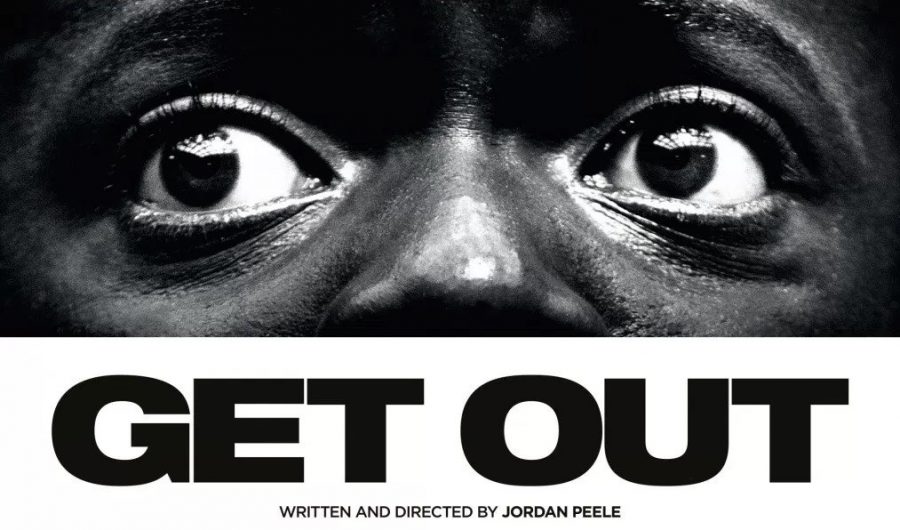REVIEW: Oscar nominated film ‘Get Out’ alters perspective on stereotypes
The Oscar-Nominated film ‘Get Out’ sent ripples throughout its audience, altering the perspectives of many.
February 10, 2018
Every few years a film debuts that alters the way we encounter and create cinema, but there is perhaps only a few instances in a lifetime that a film comes along that does not just change our perspective; it completely obliterates all preconceived notions. “Get Out” is one of those films.
There is no category to describe it because it refuses to be confined by the boundaries of genre. There is no film to compare it to because no one has dared speak its unique language until now. It calls systemic racism and implicit bias, a commentary usually reserved for drama, by its true name: horror.
A synopsis of “Get Out” is a tippy-toed stroll. Rose Armitage (Allison Williams) and Chris Washington (Daniel Kaluuya) are a mixed race couple living in the city. Rose brings Chris to meet her white family at their home in the country for the weekend. To elaborate any further would be an enormous disservice to new viewers who have not had the opportunity to form their own interpretation. “Get Out” is so deeply layered, everyone digs in at a different depth, for better or worse.
“Get Out” is not simple viewing. An open mind is necessary. This is not a film you can throw on in the background. You must be fully ready to contemplate and change. White viewers, it may be a slap in the face. Let it sting.
At the helm of this tour de force of filmmaking is Jordan Peele. Peele wrote, directed and produced the film. Already a bonafide comedy legend, “Get Out” was the farthest predictable step following the conclusion of Peele’s hugely successful sketch show “Key & Peele.”
Unfortunately, Get Out’s immaculate timing amongst society is a little too precise for an Academy who loves the look of a subtle think-piece like “Three Billboards Outside Ebbing, Missouri.” No way will this be Peele’s last opportunity, though. He has only scratched the surface of what has the makings of a cinematic revolution.










cm • Feb 19, 2018 at 3:46 pm
“tippy-toed stroll” and “let it sting”–well done! Nice and tight review.